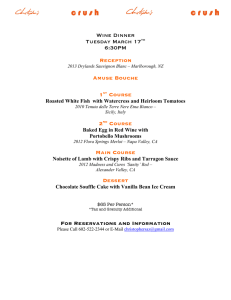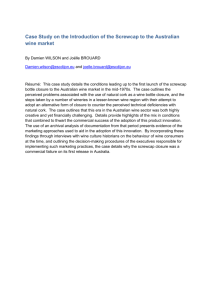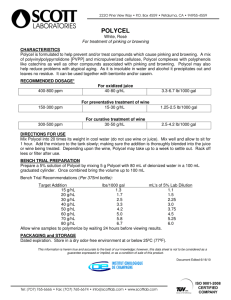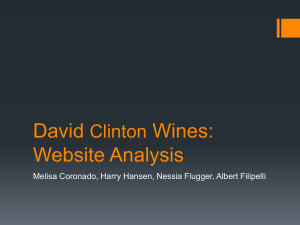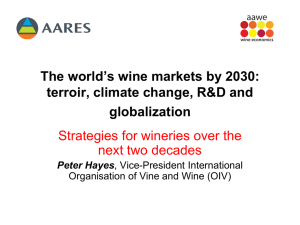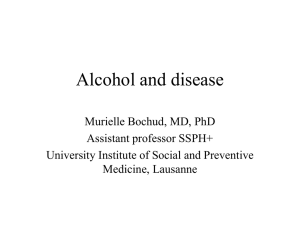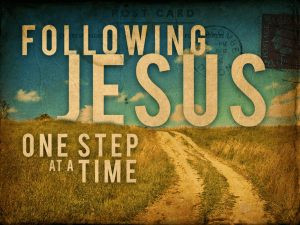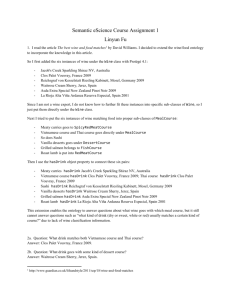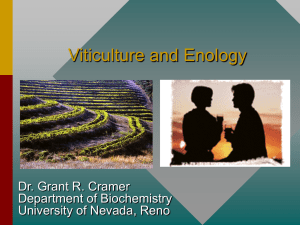English reading group week 7
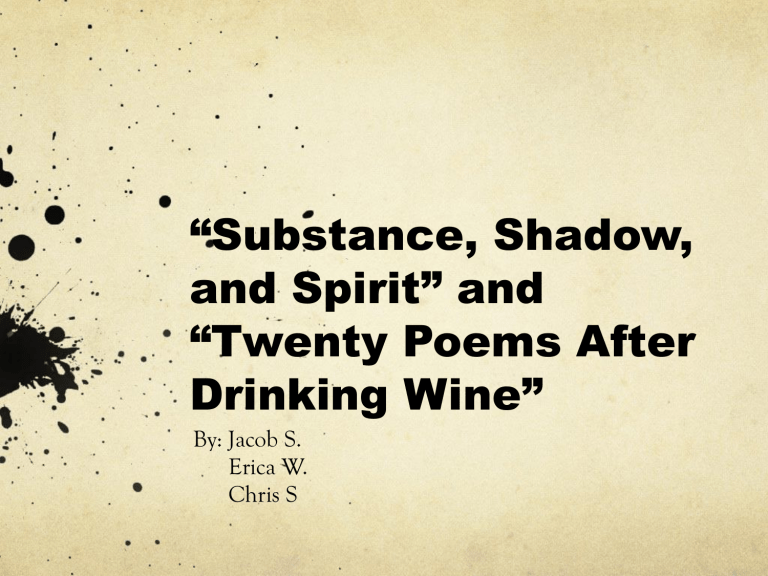
“Substance, Shadow, and Spirit” and
“Twenty Poems After
Drinking Wine”
By: Jacob S.
Erica W.
Chris S
Weekly Notes
Poetry is focused on a simple concept: celebration of life in the face of life’s essentially temporary nature.
The concept would have been clear to Augustine in his own reflections on the earthly existence of man, who believes that life is an opportunity to study and serve
God.
Tao Qian, on the other hand, thinks life is an opportunity to enjoy nature and live his life happily.
He also respects and loves nature.
•
•
•
•
•
“Substance, Shadow, and
Spirit” Summary
Tao Quian speaks about how the Earth and the mountains and streams “endure forever” and “never change,” but we, humans, are only here for a short, limited time. He also explains that
The world does not mark when “there’s one less man.”
This being said, he describes his view on life by saying that he wants to live in paradise and be immortal, but the road is a long lost cause. He states, “no discussing immortality When just to keep alive is hard enough.”
His point of view is that death is inevitable, and instead of being afraid of it, one should free his or her mind of it and
“just surrender to the cycle of things” without worries.
He uses wine to forget his worries and simply live life.
“Twenty Poems After Drinking
Wine” Summary
Tao Qian starts this passage by stating that he drinks wine every night until he gets drunk, and explains he writes poetry when he is drunk:
He built his house along a busy road, but does not hear any noise passing by, because his mind is detached. He enjoys the beautiful sunsets, and the smell of the mountain air. He says there is a truth in these things, but can not express what they mean to him.
One morning he hears a knock at his door. It was a farmer who brought wine to
“pay a distant call.” and tells him that he is not living to standard and is not up to date on anything. He thanks the farmer for informing him but tells him he lives this way by choice. He is his own person and lives how he wants and doesn’t change because the world tells him to. He explains that the only real mistake a man can have is to go against himself. He tells the farmer it is too late to change the way he lives now.
In the last poem, he made a trip to the Easter Sea. It was himself forcing him to make this trip. It says he was hungry. Maybe he needed something to fill his life?
He realizes he is full enough and goes back home.
Weekly Discussion
This week's reading focuses on non-Christian sources.
What would change in these works if they were told from a Christian, particularly Augustinian, perspective?
Would the basic human truths, if there are any, remain the same? If so, why? If not, why not and what does that suggest about the nature of human truths?
Discussion Answer
The author writes these works in a humanistic tone, mixed with a little fatalism.These works may have changed a little if written from a devout Christian's point of view, in that a Christian may have lived and acted in a more "proper" way, and probably would have spent a little less time drunk. As for the basic human truths, they wouldn't change no matter what point of view it was written from; people are born, they live and experience, and they die.
